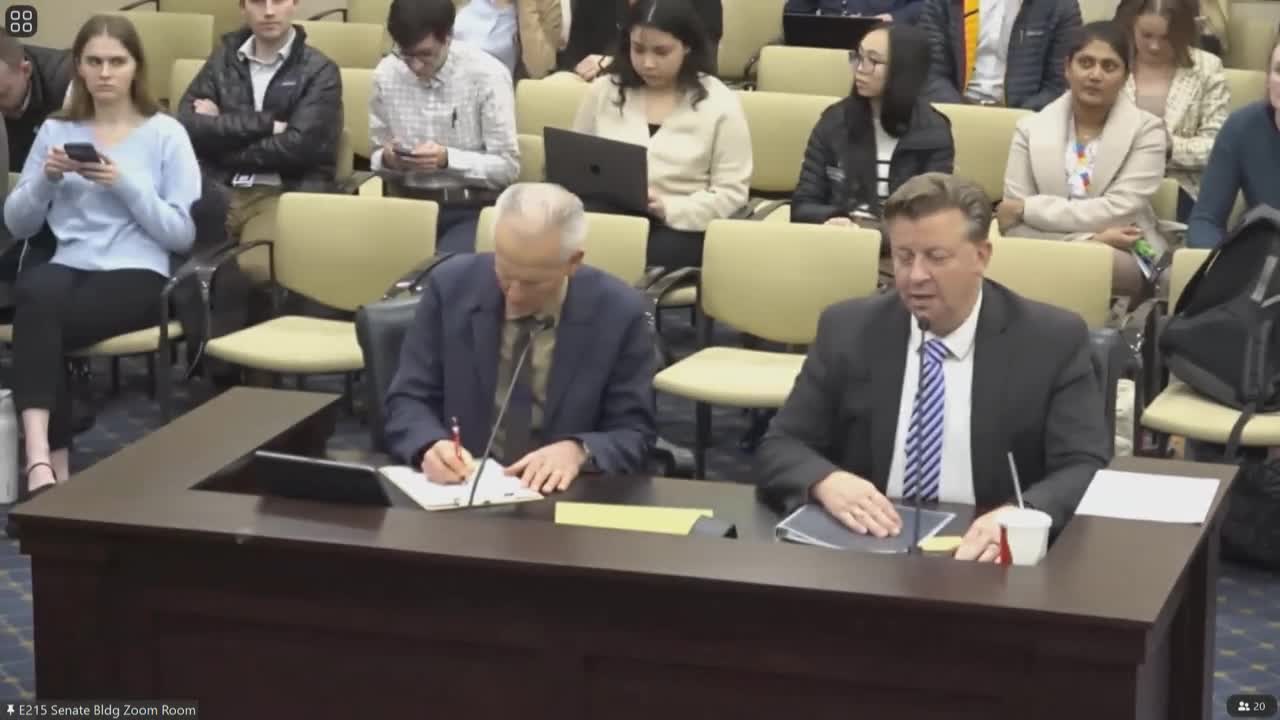Utah lawmakers propose Code Red bill for cooling centers amid extreme heat concerns
January 30, 2025 | 2025 Utah Legislature, Utah Legislature, Utah Legislative Branch, Utah
This article was created by AI summarizing key points discussed. AI makes mistakes, so for full details and context, please refer to the video of the full meeting. Please report any errors so we can fix them. Report an error »

During a recent meeting of the Senate Health and Human Services Committee, lawmakers discussed a new legislative proposal aimed at protecting vulnerable populations during extreme heat events. The proposed "Code Red" bill would establish cooling centers for unhoused individuals when temperatures reach 105 degrees Fahrenheit, complementing the existing "Code Blue" initiative that mandates shelter during freezing temperatures.
Senator Weiler introduced the bill, emphasizing the need for a safe space for individuals during the hottest parts of the day. Unlike Code Blue, which requires overnight accommodations, Code Red would provide daytime relief, allowing individuals to access air conditioning and respite from the heat.
Wayne Niederhauser, a key contributor to the bill, highlighted the importance of aligning the trigger temperature with the National Weather Service's heat index, which considers humidity and other factors that affect heat exposure. The committee is considering amendments to refine the temperature criteria and the operational dates for the cooling centers, similar to the June 1 to September 30 timeframe established for Code Blue.
Additionally, discussions included the need to differentiate between congregate and non-congregate shelters. The bill aims to ensure that congregate shelters, which house individuals in shared spaces, are adequately equipped to meet the demands of both Code Blue and Code Red.
As the committee continues to refine the proposal, the focus remains on ensuring that vulnerable populations have access to necessary resources during extreme weather conditions. The next steps will involve further stakeholder engagement and potential amendments to enhance the effectiveness of the legislation.
Senator Weiler introduced the bill, emphasizing the need for a safe space for individuals during the hottest parts of the day. Unlike Code Blue, which requires overnight accommodations, Code Red would provide daytime relief, allowing individuals to access air conditioning and respite from the heat.
Wayne Niederhauser, a key contributor to the bill, highlighted the importance of aligning the trigger temperature with the National Weather Service's heat index, which considers humidity and other factors that affect heat exposure. The committee is considering amendments to refine the temperature criteria and the operational dates for the cooling centers, similar to the June 1 to September 30 timeframe established for Code Blue.
Additionally, discussions included the need to differentiate between congregate and non-congregate shelters. The bill aims to ensure that congregate shelters, which house individuals in shared spaces, are adequately equipped to meet the demands of both Code Blue and Code Red.
As the committee continues to refine the proposal, the focus remains on ensuring that vulnerable populations have access to necessary resources during extreme weather conditions. The next steps will involve further stakeholder engagement and potential amendments to enhance the effectiveness of the legislation.
View full meeting
This article is based on a recent meeting—watch the full video and explore the complete transcript for deeper insights into the discussion.
View full meeting

